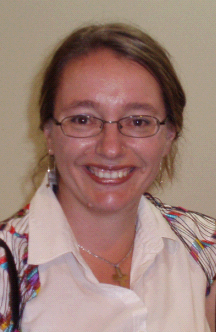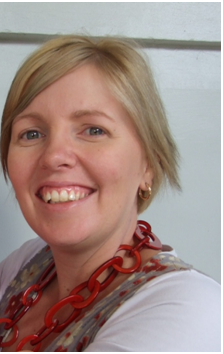17 Feb, 2012 | Filed under: Level 1 training |
A second partnership brokers training course has just taken place in Ghana – commissioned by Newmont Ghana Gold Ltd for their community development staff and some of their key NGO and regional government partners. 
To date ‘in-house’ partnership brokers training has been commissioned by Microsoft (in USA, Europe, Middle East and SE Asia), AusAid (in Fiji), GTZ (in India) and the Government of Newfoundland & Labrador (Canada). If your organisation is interested in an in-house version of this course please contact us for more details.
30 Sep, 2011 | Filed under: Accreditation Scheme, Alumni, Reflective Practice |
By Carmel Vandermolen

Carmel Vandermolen
This is a story of two people who live over 2000 kilometres from each other, but despite the distance have become very important ‘critical friends’ in both a personal manner and as Partnership Brokers. These two critical friends have both had to deal with the challenges of post PBAS – the Partnership Brokers Accreditation Scheme which is the Level 2 option for practitioners seeking accreditation
This journey starts in September of 2010 when these two critical friends meet for the first time while attending the Level 1 training, and like many before them had a whole new world open up to them. Now for everyone who has been lucky enough to participate in the Level 1 training you will know that part of the program is to set you up with a critical friend to support you in reviewing your action plans developed during the training for implementation upon return to your work. While neither of these critical friends was purposefully set up in the training, the connection that was made meant that it happened anyway.
These critical friends have since completed PBAS Level 2 training, one at the end of 2010, and the other at the start of 2011. The PBAS Level 2 training comes with a very knowledgeable and supportive mentor who helps you question and improve your skills in the area of partnership broking. Over the three month period of PBAS the connection made with the mentor and the support that is provided goes a long way to improving both your skills and confidence. And then comes that black hole at the end of the three months when the training finishes and you no longer have access to the wonderful mentor and the big question of “how do I keep up the important practices that I have developed and implemented in the last three months?”
One of these important practices is the development and use of a log book that helps you to identify patterns and supports you to evaluate your own skills. What is improving?, where could I improve?, what went wrong that time? All the important reflective practice skills put into a format that can help you to expand your brokering skills. After getting used to having to write up and submit a log book, now you have no need to for a training purpose, but for a growth purpose and to continually learn and improve there is every need. But life gets busy, you skip a week, you have more meetings this week than you can handle, you skip another week of the log book. Soon you realise that you have not used it for over a month, and then it is so much harder to get back into it even though you know how beneficial it is for both yourself and the partnership(s) that you are involved with.

Roxanne Hodda
Then comes another important teleconference with your critical friend, and a discussion that is focused on the same issue, how to deal with the challenge of maintaining your reflective practice after completing PBAS! In the discussion between the critical friends an idea forms, and then the idea turns into action. The idea is in the form of reporting to each other at the end of each month, in just one page, of the challenges and successes faced in that month. The information should come from your log book that you have kept over that month. No longer do you have your mentor from the Level 2 training, but you do have each other and a commitment to each other to be the best you can be. And to be that important someone in another’s partnership life that can be that support for both the good and bad times, for the frustrations and the highlights when it all goes right.
The role of a critical friend can never be overlooked, and in meeting the challenges of post PBAS Level 2 it can be essential in making sure you get the best out of the training you have just completed.
Carmel says thank goodness I have Roxanne as Roxanne says thank goodness I have Carmel.
To be continued….
22 Dec, 2010 | Filed under: General News, Level 1 training, Research |
A pleasing number of people from the global network of partnership brokers (114) responded enthusiastically to our recent survey. Responses indicate an interesting level of consensus about the way forward for this work and we (the staff team and the International Development Group) will be using the findings as a basis for the comprehensive development plan from January 2011.
We feel our general direction has been warmly endorsed and have summarised the findings below. A full summary of responses can be downloaded here.
Warmest good wishes for the Festive Season and for all the important work that will be undertaken by you and other partnership brokers in 2011!
Survey headlines include:
Training
- Expansion of open Level 1 training courses to new regions warmly welcomed (SE Asia, Africa and USA specifically mentioned)
- Strong endorsement of sector-specific Level 1 options – Health and Extractives sectors achieving highest rating
- Respondents indicated a high need for single sector or individual organisation trainings for every sector – business, donors, governments, international agencies and NGOs
- Some made the case for small groups for Level 1 making it possible to be highly personal and responsive to individual brokering challenges
- Many endorsed Level 1 being a residential programme in a ‘retreat’ setting as an important aid to getting participants out of their comfort zones
- Warm enthusiasm for other post-Level 1 training opportunities with the following emphasis:
– Cross-sector exchanges (88 rated this as ‘high importance’)
– New Leadership training (78 rated this as ‘high importance’)
– Specialist topics (55 rated as ‘high importance’) – with negotiation, communication, reviewing and personal development being singled out as topics
– Level 1 refresher courses (46 rated as ‘high importance’)
- 55 respondents thought a Masters level qualification (Level 3) would ‘add significantly to knowledge and influence’ on partnership brokering –a long-distance course being an important component and a strong emphasis on practice
Research
- An overwhelming majority, 88.7%, of respondents said that there was a demand / need for evidence demonstrating the impact of brokering.
- The theme that received the highest marks in terms of ‘usefulness’ was “A comparative analysis of brokered versus un-brokered partnerships.”
- Suggestions for other research topics were largely variations of the ones proposed (see LEARNING section of website for more details)
- Research into internal versus external brokering was suggested
- There was considerable enthusiasm for being involved in research from the respondents
Network, Institute & Influence
- Strong interest in a community of practice as long as it was well moderated – with particular enthusiasm from many in developing regional chapters / networks (ie linking Level 1 graduates from different cohorts but living and working in the same region)
- Interest in some international and regional events to ‘put brokering on the map’ with decision-makers and leaders in all sector
- Considerable support for an international professional institute of partnership brokers – though some expressed a level of dissatisfaction with other professional institutes and hope that this would be different.
-
-
19 Oct, 2010 | Filed under: Level 1 training |
The 5-day residential basic training for partnership brokers is now well known. Open cohorts (global or regional) are running at the rate of 7 a year. But we have also developed other models – both ‘in-house’ / single organisation cohorts and for established partnerships. We have undertaken pilots with a number of organisations including Africa Development Bank, AusAid, Government of Newfoundland Rural Secretariat, and Microsoft. And they work! Next to explore are adaptations to single issues / themes and we are in discussions with a view to Level 1 courses targeting the extractives sector, humanitarian relief agencies, and donors.
If you would like to know more or explore with us the possibility of a tailored version of the basic training contact us.


